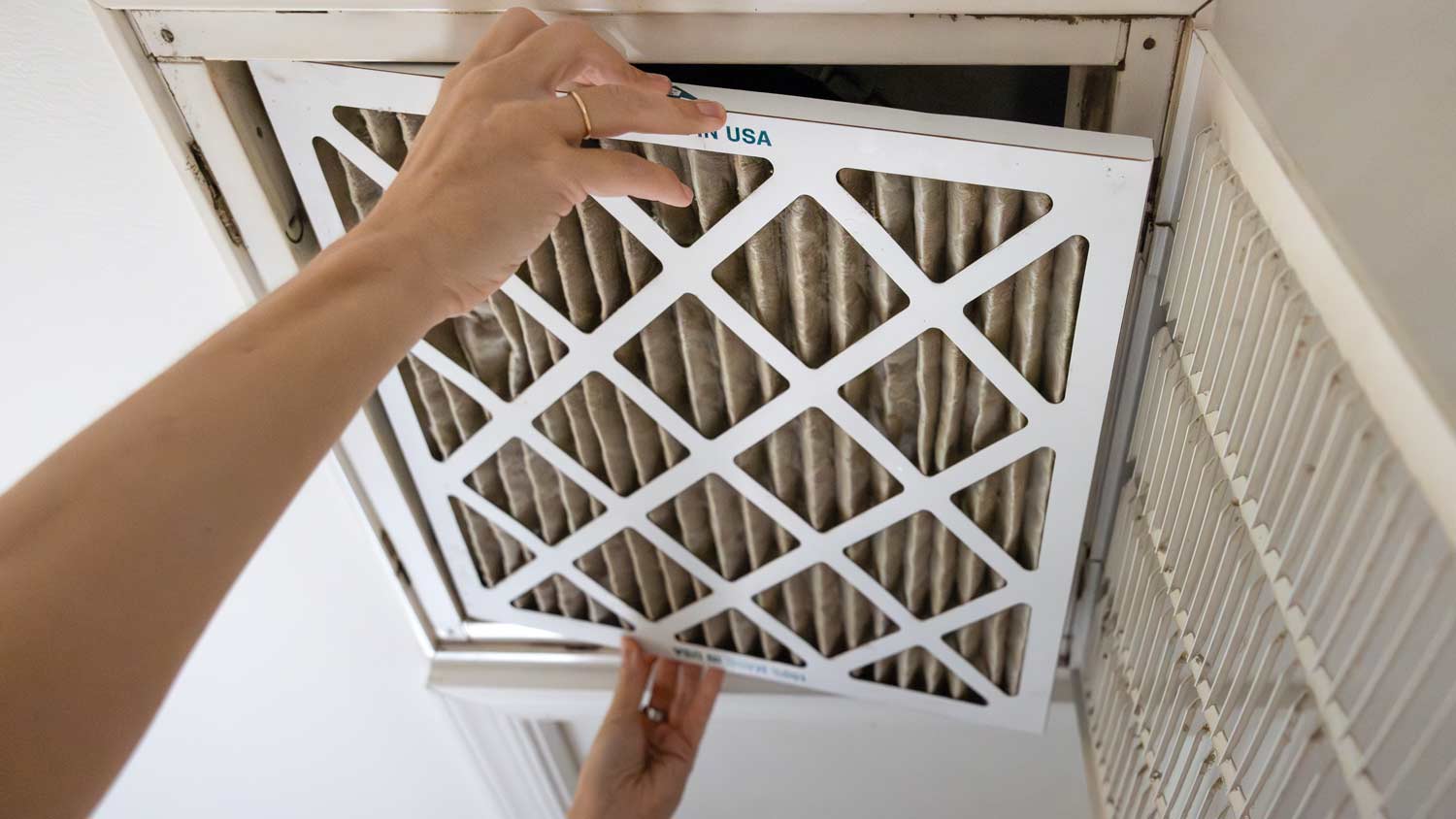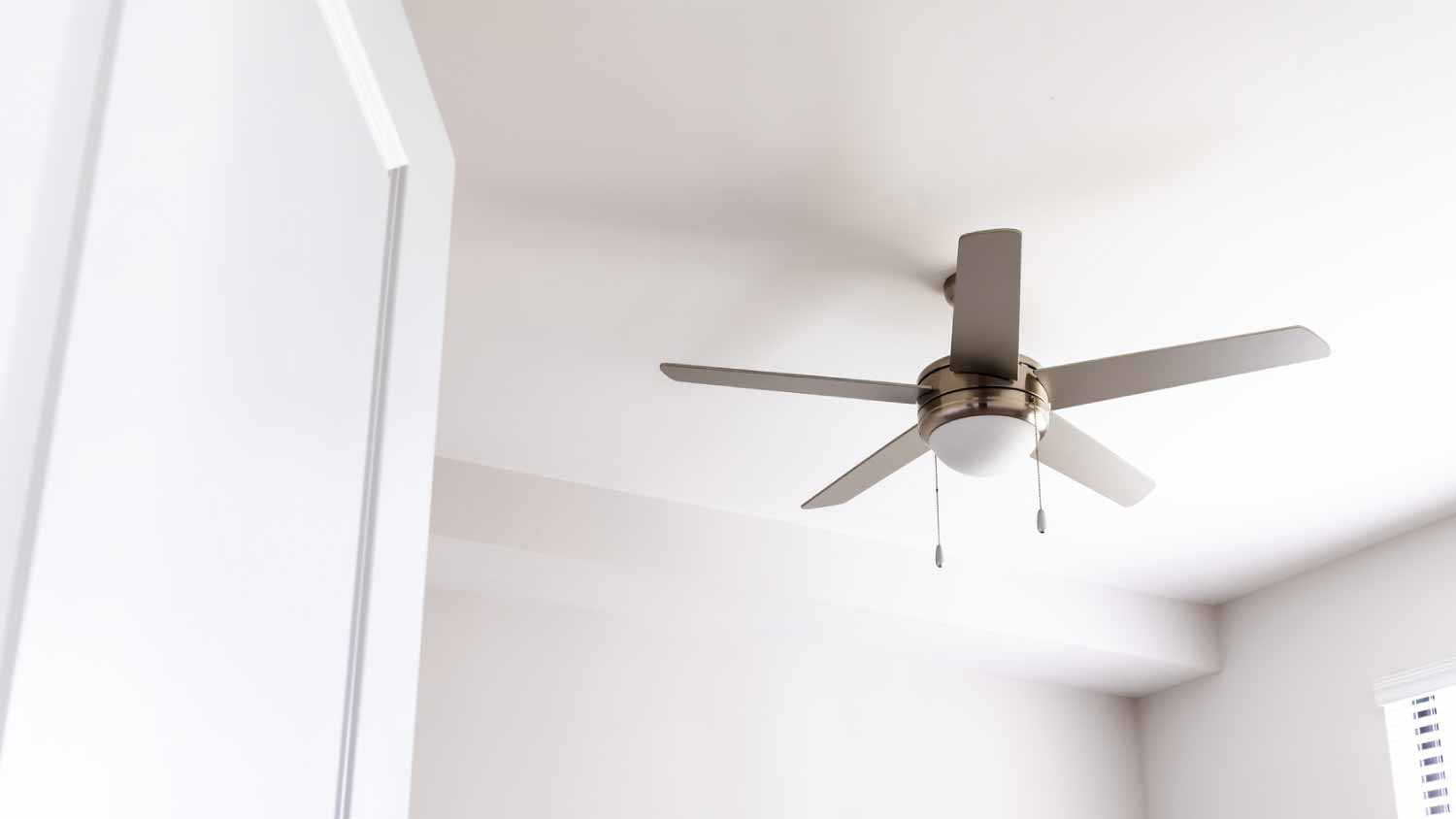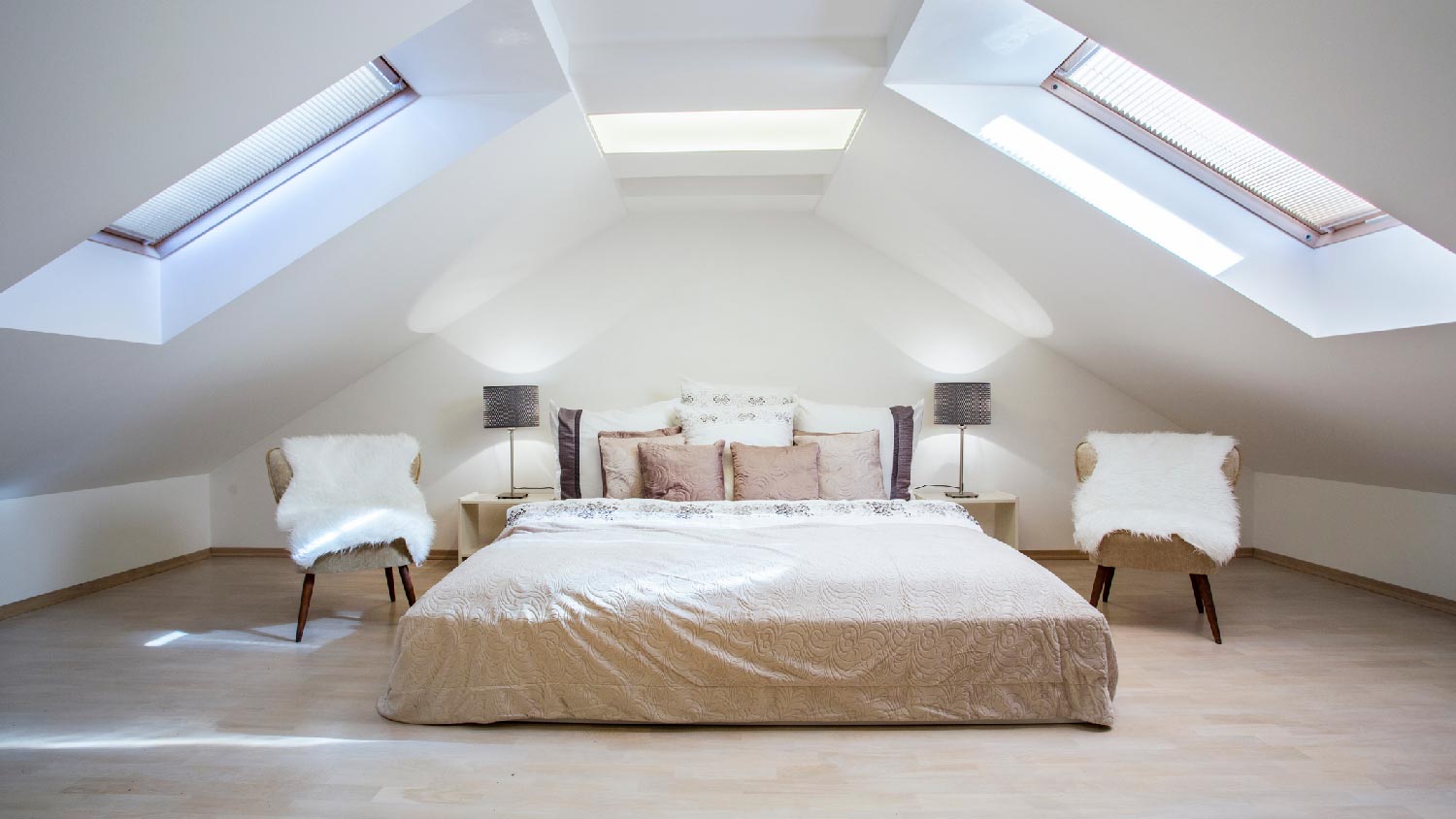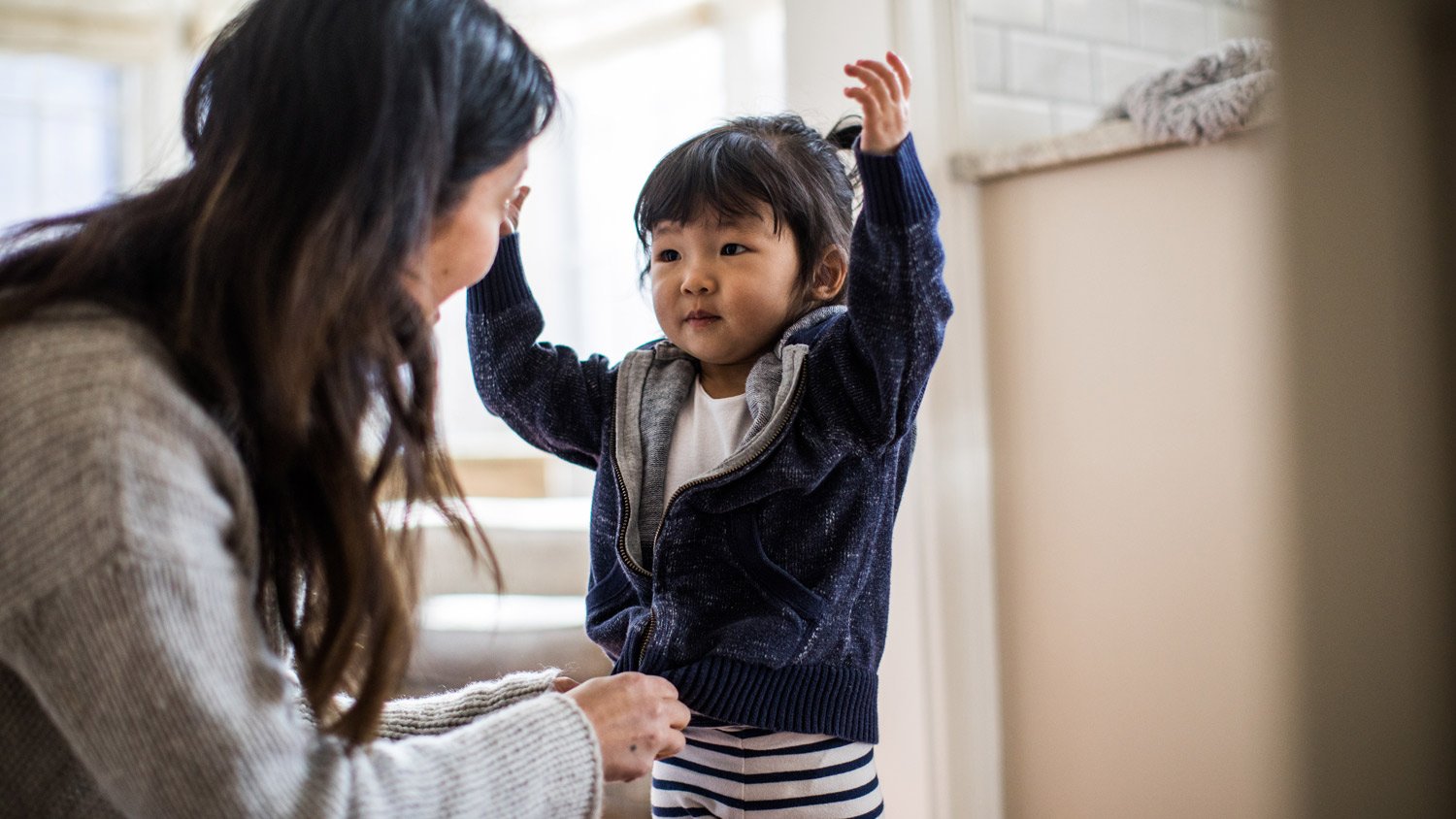How Often Should You Change Your Air Filter?
This task helps keep your HVAC system running like clockwork


Most HVAC air filters require changing at least every three months.
Some larger, thicker types of filters only require changing once a year.
Neglecting this task can reduce your home’s air quality and affect your HVAC system performance.
Factors such as your home’s location, occupants (including pets), and age affect how often you need to change air filters.
Staying on top of HVAC maintenance helps the system run smoothly for longer. Some jobs are best left to the professionals, but one top-priority task that’s easy to tackle yourself is changing the HVAC air filters. However, this isn’t a one-and-done duty. Learning how often to change air filters will help improve your indoor air quality and keep your home at the perfect temperature year-round.
Why Changing HVAC Air Filters Is Important
Learning how to change your HVAC air filter and adding this to your house cleaning checklist helps keep your system running smoothly and traps harmful airborne particles. The best air filters keep allergens and pollutants like pet dander, dust, and mold spores from blowing around your rooms.
A dirt-filled filter also prevents air from passing through the system effectively, which can lead to overheating and costly HVAC repairs. Changing the filter can also help reduce your HVAC energy costs—a dirty air filter means the system has to work harder to produce the cool air or heat you want.
How Often to Change Air Filters

Most manufacturers and HVAC professionals recommend changing your air filter at least every three months. However, the optimal frequency can vary from once a month to once a year, depending on your home location, size, and setup. The HVAC filter size and rating also impact how often you need to change them, with thicker, larger filters tending to require less frequent changing.
Factors That Influence How Often You Change Air Filters
The manufacturer’s guidance for how often to change your air filter is just that—guidance. There may be times when you need to change the filter more or less frequently. Some factors that can influence how often you need to change your air filter include:
Pets: The filter will get dirtier faster if you have a houseful of pet hair and dander.
Allergies: More frequent filter changes can help promote better indoor air quality for sufferers of environmental allergies or other respiratory conditions.
HVAC usage: A vacation home that’s only used a few months of the year might need a less frequent than recommended filter changes. A busy home where the system works hard all the time could need more frequent replacement.
Location: Windy, dusty, dry locations and those with air pollution from traffic or wildfires will necessitate more frequent air filter changes.
Home age: Air filters in old homes could need more frequent changing. Dust and other pollutants enter through those gaps in windows, doors, insulation, and even older, less efficient HVAC systems.
Signs That You Need to Change Your Air Filter
Even if the guidance suggests changing your air filter at least every three months, inspecting it monthly is good practice. Consider these common signs you need to change your air filter early:
Light can’t pass through the filter
The filter is emitting a bad odor
The filter is a dirty gray or yellow color
Your home is getting dustier faster than normal
Your HVAC system experiences performance issues, such as reduced airflow, uneven heating or cooling, or overheating
DIY Air Filter Changing vs. Hiring a Pro
Even if you’re the least DIY-savvy homeowner, you should be able to change an HVAC air filter. It isn’t a high-tech task, and you don’t need to use any tricky tools. Just allow for the cost of the HVAC filter replacement, which ranges from $10 to $50, and around 10 minutes of your time.
However, if you’re concerned a dirty filter has led to HVAC system performance issues or you suspect other HVAC repairs are needed, hiring a local HVAC company makes sense.
Frequently Asked Questions
While you can run your HVAC system without an air filter, it isn’t something professionals recommend—especially not for an extended period. It can reduce indoor air quality, clog air ducts, and strain your system. This can lead to performance issues, higher energy bills, costly repairs, and a reduction in the system's lifespan.
Always turn off the power to your HVAC system before you remove the front cover to replace the air filter. If there isn’t an off switch, turn it off at the circuit breaker box. This prevents the risk of electric shock and stops unfiltered air from passing through the ductwork while the thermostat is running.





- Furnace Repair
- Air Conditioning Repair
- HVAC Repairs
- Furnace Installation
- Wood & Pellet Stove Repair
- Dehumidifier & Humidifier Repair
- Heat Pump Companies
- Swamp Cooler Repair
- Wood Stove Services
- HVAC Companies
- Commercial A/C Repair
- Geothermal Installation
- Air Conditioning Installation
- Boiler Repair
- 24 Hour Furnace Repair
- Geothermal Repair
- Heat Pump Repair
- Humidifier Installation
- Thermostat Repair
- Thermostat Installation
- Nest Installation
- Heating & Cooling
- Heating Repair
- Furnace Cleaning
- Furnace Tune-Up
- HVAC Technicians
- Subcontractors
- Furnace Maintenance
- Plumbing & Heating Companies
- Wood Stove Inspection
- Mini Split Installation
- Wall Heater Repair
- Duct Installers










